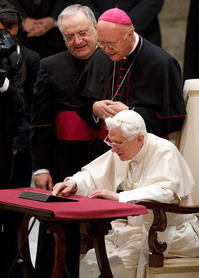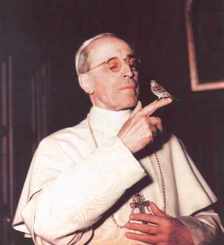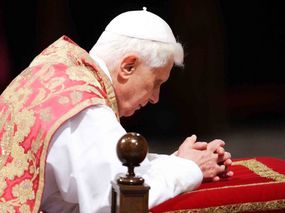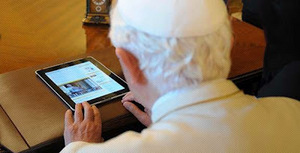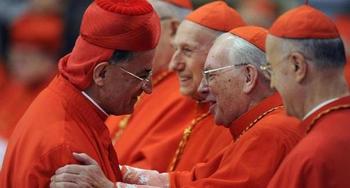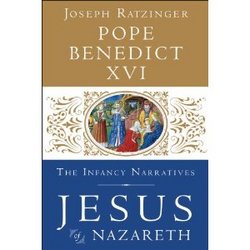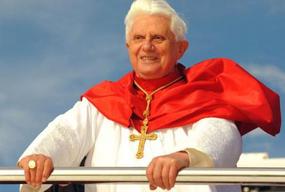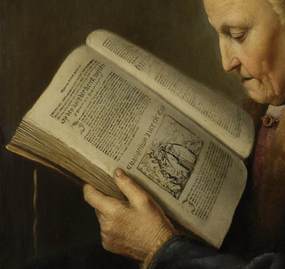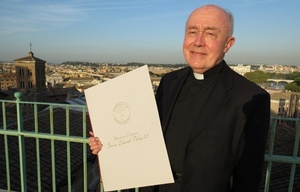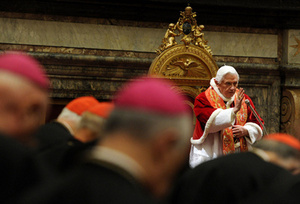 It’s custom for the Holy Father to speak to the members of his Curia in way that reviews the past year, assessing the “situation” faced in the Apostolic ministry, and to give some idea of what will be worked on in the coming year. The address is ALWAYS worth the time to read, to study, and to reflect on in a serious manner. The Pope is a masterful thinker and writer; he really sets the bar pretty high but with clarity. One is clear to me is that the Pope is calling the laity to a new engagement in faith formation, worship of God, and cultural and political activities (not activism, there’s a difference). You might say that the goal of the Pope in his address is to help us to rediscover the gift and beauty of Catholic faith. As he notes, God comes to us in the circumstances of life. Some people will latch on the sensational parts of the talk, especially with some of the more heated topics discussed in society today but the raising of issues and talking about them intelligently isn’t a sign of trouble or weakness in the communion of the Church, but a way to seriously look at what is before us and to rely on God for help. We do, as you will agree, have a nostalgia for the Infinite which shows that we are limited human beings in need for a deeper conversion to the Good News. What the Pope reminds us here is that our Salvation doesn’t come from within us but is given by Someone outside, that is, by the Most Holy Trinity.
It’s custom for the Holy Father to speak to the members of his Curia in way that reviews the past year, assessing the “situation” faced in the Apostolic ministry, and to give some idea of what will be worked on in the coming year. The address is ALWAYS worth the time to read, to study, and to reflect on in a serious manner. The Pope is a masterful thinker and writer; he really sets the bar pretty high but with clarity. One is clear to me is that the Pope is calling the laity to a new engagement in faith formation, worship of God, and cultural and political activities (not activism, there’s a difference). You might say that the goal of the Pope in his address is to help us to rediscover the gift and beauty of Catholic faith. As he notes, God comes to us in the circumstances of life. Some people will latch on the sensational parts of the talk, especially with some of the more heated topics discussed in society today but the raising of issues and talking about them intelligently isn’t a sign of trouble or weakness in the communion of the Church, but a way to seriously look at what is before us and to rely on God for help. We do, as you will agree, have a nostalgia for the Infinite which shows that we are limited human beings in need for a deeper conversion to the Good News. What the Pope reminds us here is that our Salvation doesn’t come from within us but is given by Someone outside, that is, by the Most Holy Trinity.A. pastoral visits: Mexcico, Cuba, Milan, Lebanon
It is with great joy that I meet you today, dear Members of the College of Cardinals, Representatives of the Roman Curia and the Governorate, for this traditional event in the days leading up to the feast of Christmas. I greet each one of you cordially, beginning with Cardinal Angelo Sodano, whom I thank for his kind words and for the warm good wishes that he extended to me on behalf of all present. The Dean of the College of Cardinals reminded us of an expression that appears frequently during these days in the Latin liturgy: Prope est iam Dominus, venite, adoremus! The Lord is already near, come, let us adore him! We too, as one family, prepare ourselves to adore the Child in the stable at Bethlehem who is God himself and has come so close as to become a man like us. I willingly reciprocate your good wishes and I thank all of you from my heart, including the Papal Representatives all over the world, for the generous and competent assistance that each of you offers me in my ministry.
Continue reading Pope Benedict speaks to Roman Curia, reviews 2012, gives Christmas greetings
